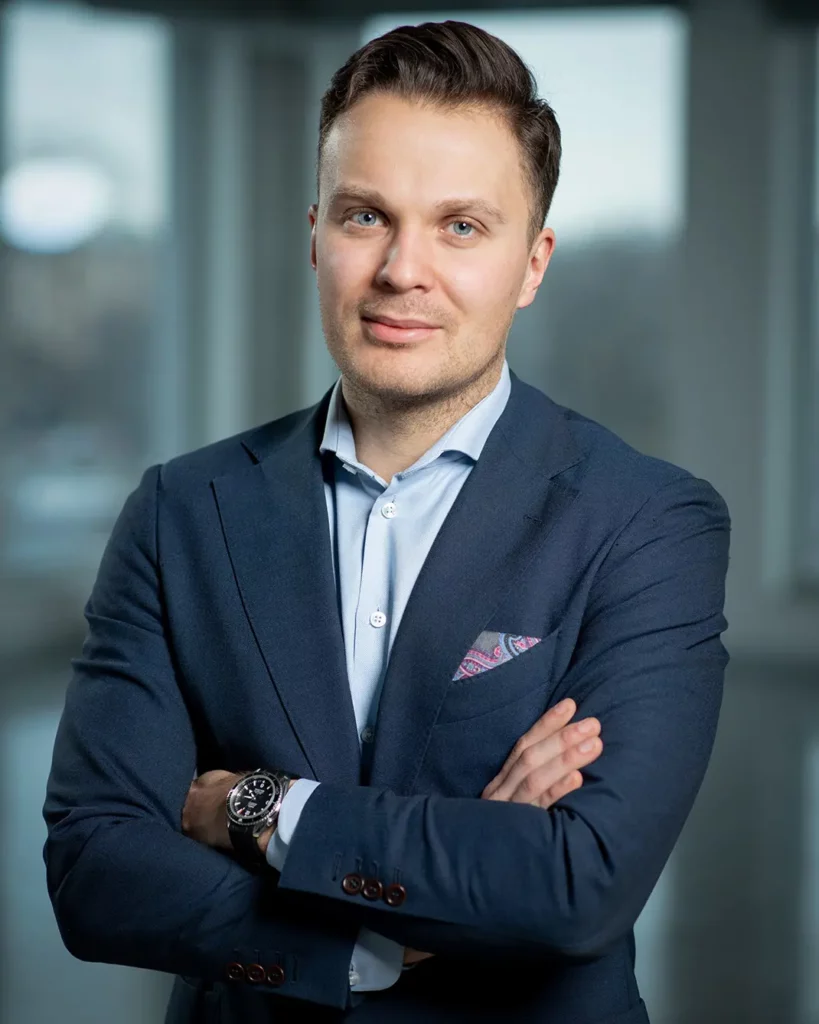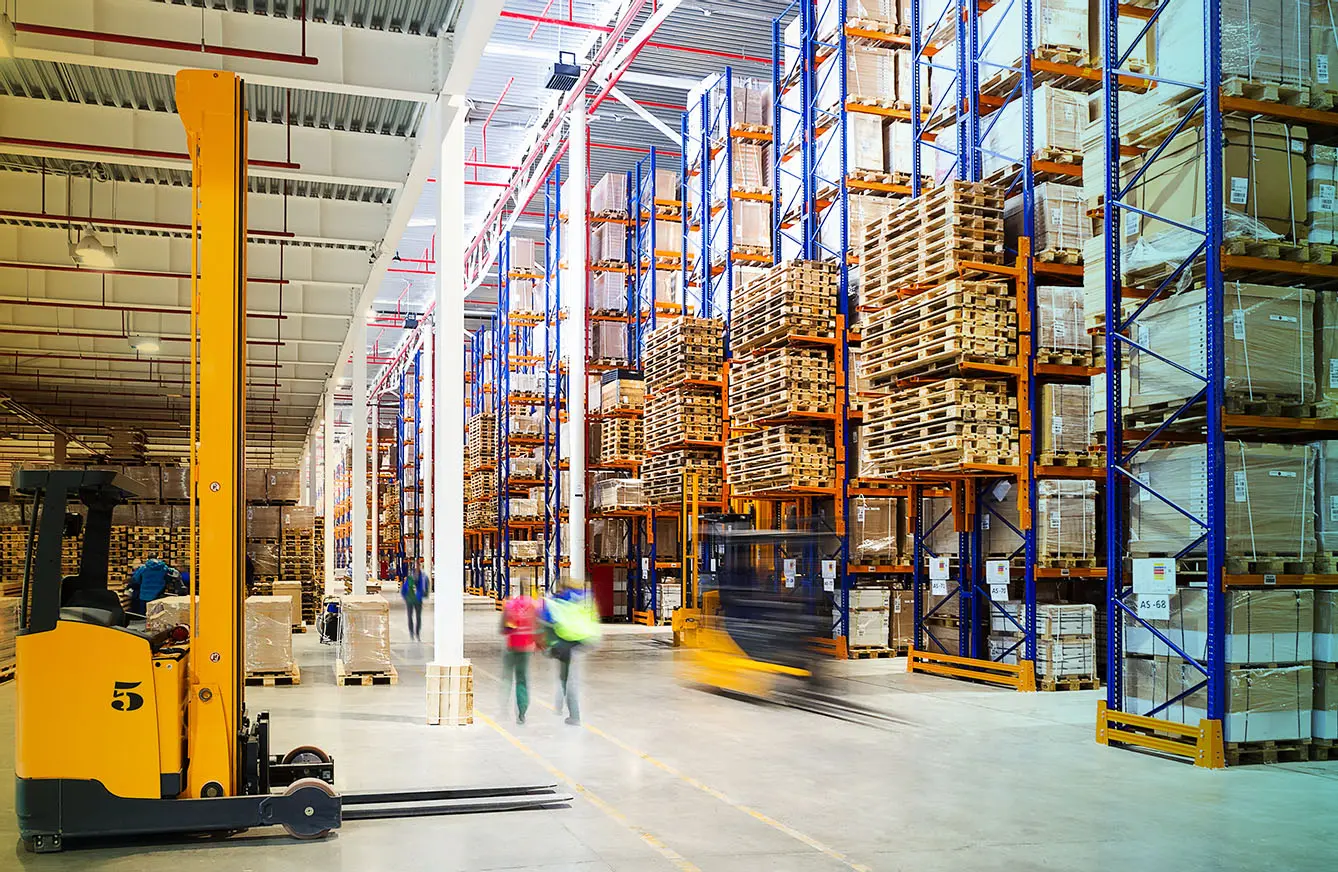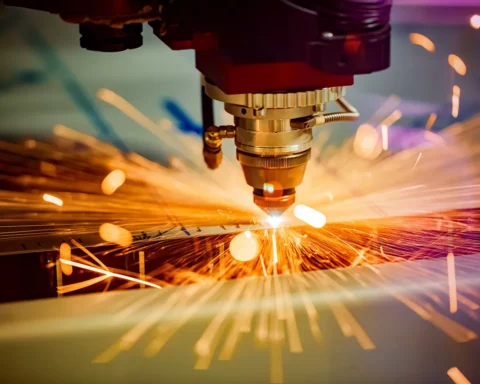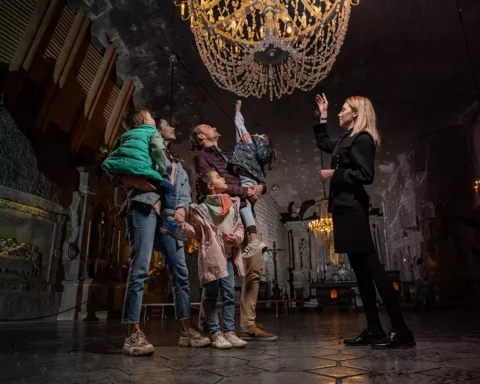A Polish startup has developed a navigation system for devices in indoor warehouses and logistic centers. Relying solely on 5G network, it symbolizes the transition from 3.0 to 4.0 Industry by use of smart AI and machine learning, as its defining features stand according to the Factory Science portal.
Digitization means that robots are increasingly taking over human work. The logistics sector is an example where such change occurs rapidly, and thus proper coordination is needed. If absent, collisions and even traffic jams occur when various devices run by humans and robots work in one space. Optimatik came up with a device that can track the position of all subjects equally to prevent such situations. The call for action and space for implementation is great as Optimatik estimates that there are as many as 12 million industrial vehicles operating worldwide that the product can work on.
Who is behind Optimatik?

Optimatik, founded in 2018, is currently a two-person show promoted and led by CEO Radek Miszczak and his colleague Jerzy Lipiński. Miszczak is perhaps known as well, if not more, in the local hip-hop music industry. Additionally, prior to embarking on the ambitious Optimatik project, he had some background in marketing. As one of his videos suggests, the connection between the two lies in the creative aspect of Optimatik’s product.
From the many activities that the startup has been, or is, engaged in, a successful seed round, demo displays, and startup incubator programs can be traced. A recent example was the Hubraum platform, a Deutsch Telekom’s Tech Incubator, which supports the tech solutions and transition to 5G, that recently interviewed Optimatik.
Optimatik has raised more than EUR 550K in funding and plans to use the money to ameliorate its product. It may be only currently known locally, but Miszczak hopes it will make a change on a larger scale for the benefit of the workers. “One of the key benefits for workers will be the liberation from dangerous and tedious jobs and will be free to pursue more rewarding forms of labor. This sounds utopian, but it is something I have seen personally; the jobs in factories that I see replaced by tech are boring, dangerous, stressful,” he said.
How does this smart technology work?
The indoor positioning technology consists of a device attached to intralogistics vehicles and a computer. The computer runs a program where the given room is displayed from above. As indicated, it connects with the device through the black box and the 5G network. Optimatik stresses the advantage of 5G compared to a WiFi network for further development in the industry. As the vehicle, a forklift, for instance, moves around, the movement is tracked on the screen. Although attached to one car, the screen is able to detect the movement of other items in the room. In the official promo videos that Optimatik presents, a robot in the form of AGV traction enters the room and moves around. The movement of AGV is equally tracked so that collision does not occur.
What’s next?
The further progress and development of the product promise smart and effective solutions in the logistics sector. For that to happen, Optimatik is collaborating with an Austrian technology startup called SLOC, which creates products that track the state of devices, such as waste bins and other items used in logistics. If these two combine, they have the potential to implement complex, innovative solutions for vehicle operations not accessible to many logistic specialists at the moment. With digitization and automation in logistics progressing, the market potential of Optimatik looks promising beyond the region as demand grows.







